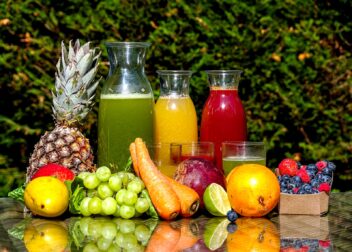The Vital Need to Stay Hydrated During Harmattan in Volta Region: Navigating the Dry Season
As the Harmattan season sweeps across the Volta Region, it brings with it a unique set of challenges, notably the dry and dusty conditions that characterize this time of year. Amidst the breathtaking scenery and cooler temperatures, it’s crucial to prioritize one’s health by ensuring adequate hydration during this period.
Harmattan, with its dry and dusty winds, tends to cause a rapid loss of moisture in the air. This phenomenon affects not only the external environment but also impacts our bodies. The dry air coupled with lower humidity levels can lead to increased water loss through evaporation, both from our skin and respiratory system. As a result, staying properly hydrated becomes paramount for maintaining overall health and well-being.
One of the most immediate effects of the Harmattan season is its impact on the skin. The dry air can cause skin dehydration, leading to itchiness, flakiness, and irritation. Hydrating from within by drinking an ample amount of water helps to combat these effects, keeping the skin supple, moisturized, and less prone to dryness.
Moreover, the dry and dusty air can also affect the respiratory system, causing discomfort such as dry throat, coughing, and congestion. Staying hydrated by drinking enough water helps in maintaining the mucous membranes’ moisture, aiding in the body’s defense against dust and other airborne particles.
In addition to water, consuming hydrating foods such as fruits and vegetables rich in water content contributes significantly to combating dehydration during this season. Watermelon, cucumbers, oranges, and tomatoes are among the many hydrating options readily available in the Volta Region that can supplement daily hydration needs.
It’s crucial to recognize the signs of dehydration, especially during the Harmattan season, as they might manifest differently in drier conditions. Symptoms such as increased thirst, dry mouth, headache, dizziness, and darker urine can indicate a need for more fluids. Ignoring these signs can lead to more severe complications, including fatigue, heat-related illnesses, and reduced cognitive function.
In conclusion, staying hydrated during the Harmattan season in the Volta Region isn’t just about quenching thirst; it’s a fundamental aspect of maintaining health and combating the adverse effects of the dry and dusty conditions. By prioritizing hydration through adequate water intake and incorporating hydrating foods into daily diets, individuals can safeguard themselves against the challenges posed by this beautiful yet arid season.
Remember, amidst the breathtaking landscape and cooler temperatures of Harmattan, ensuring your body receives the hydration it needs remains an essential part of thriving during this unique time of year.
How does this article resonate with the challenges and importance of staying hydrated during Harmattan in the Volta Region?


